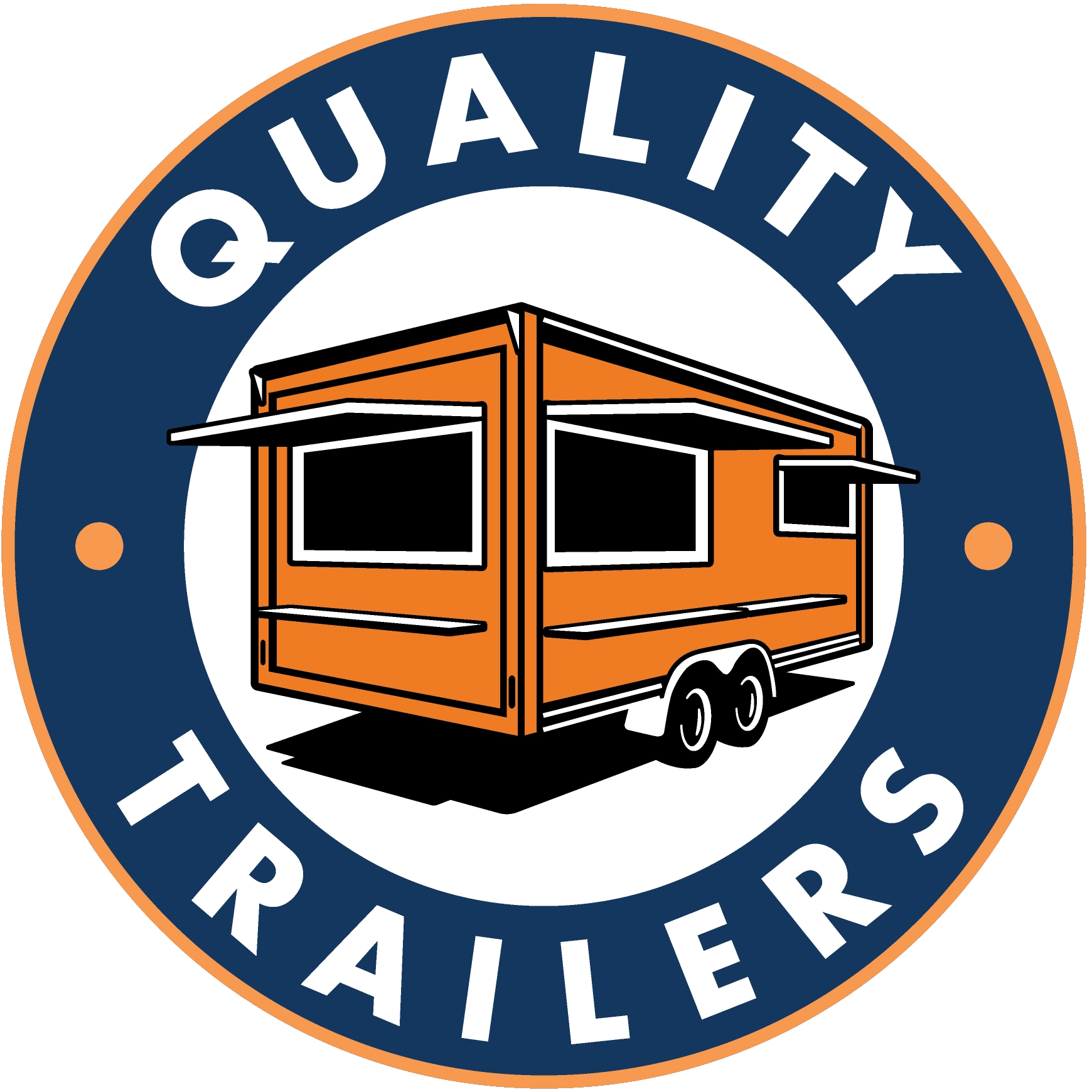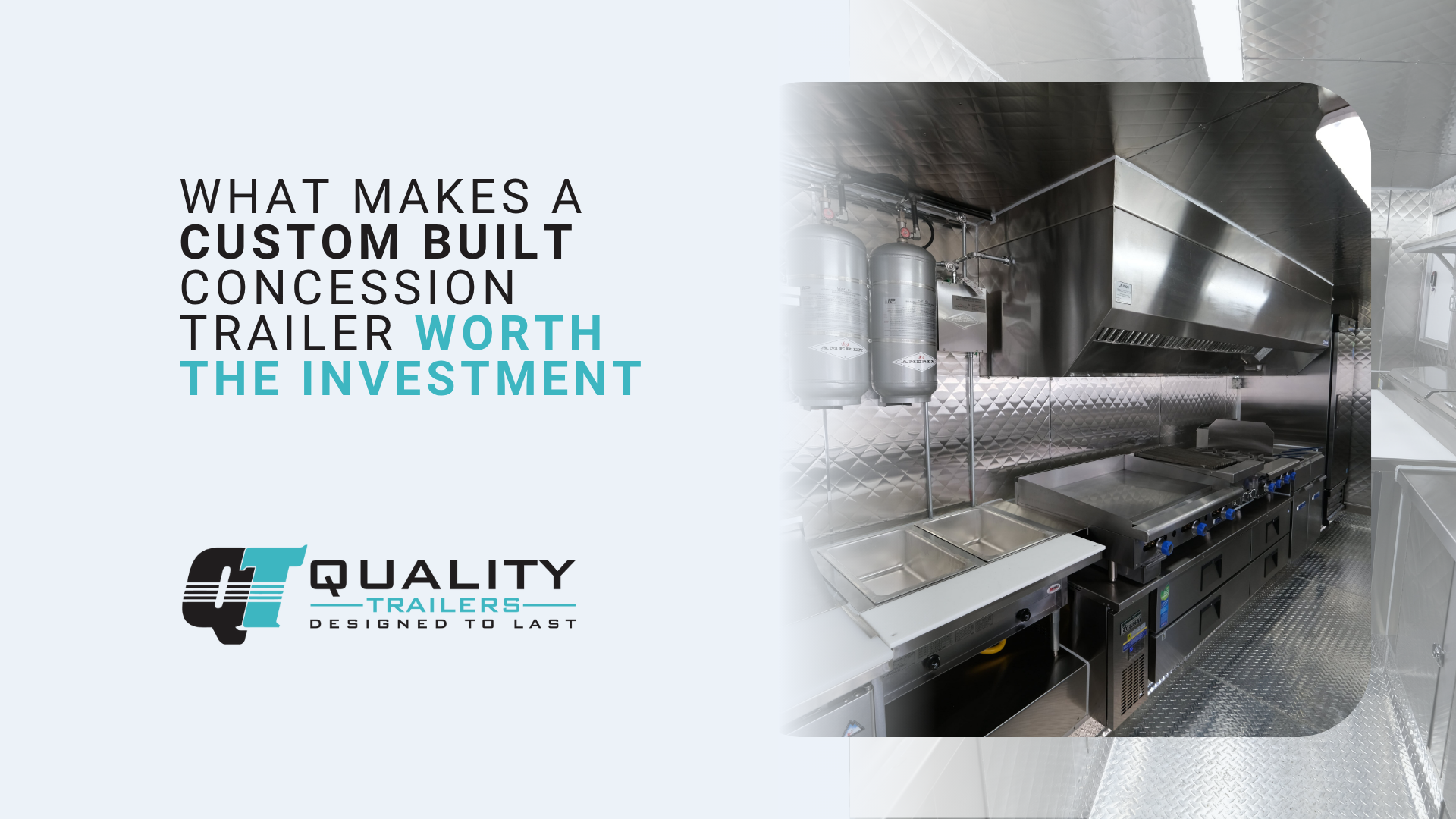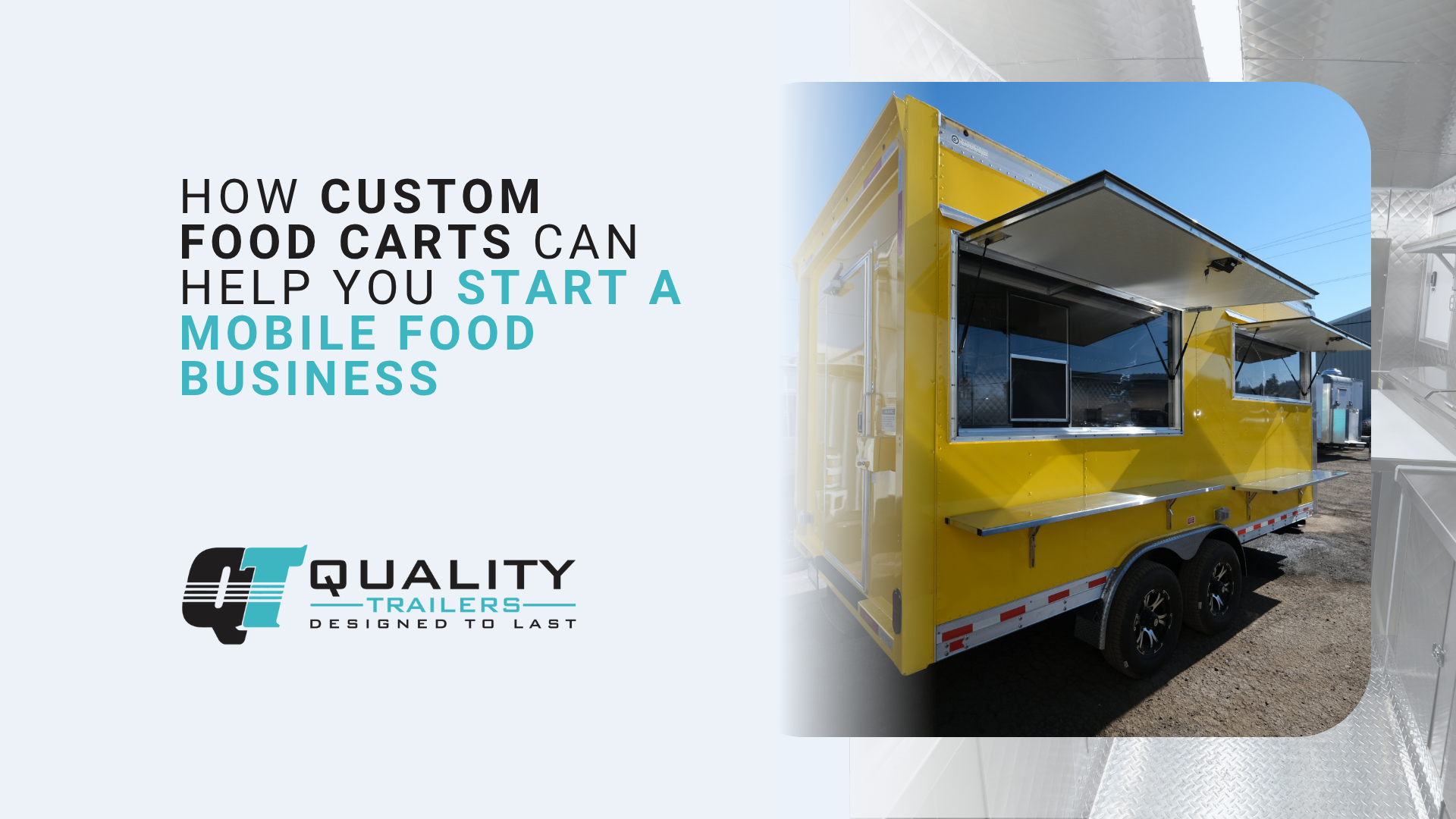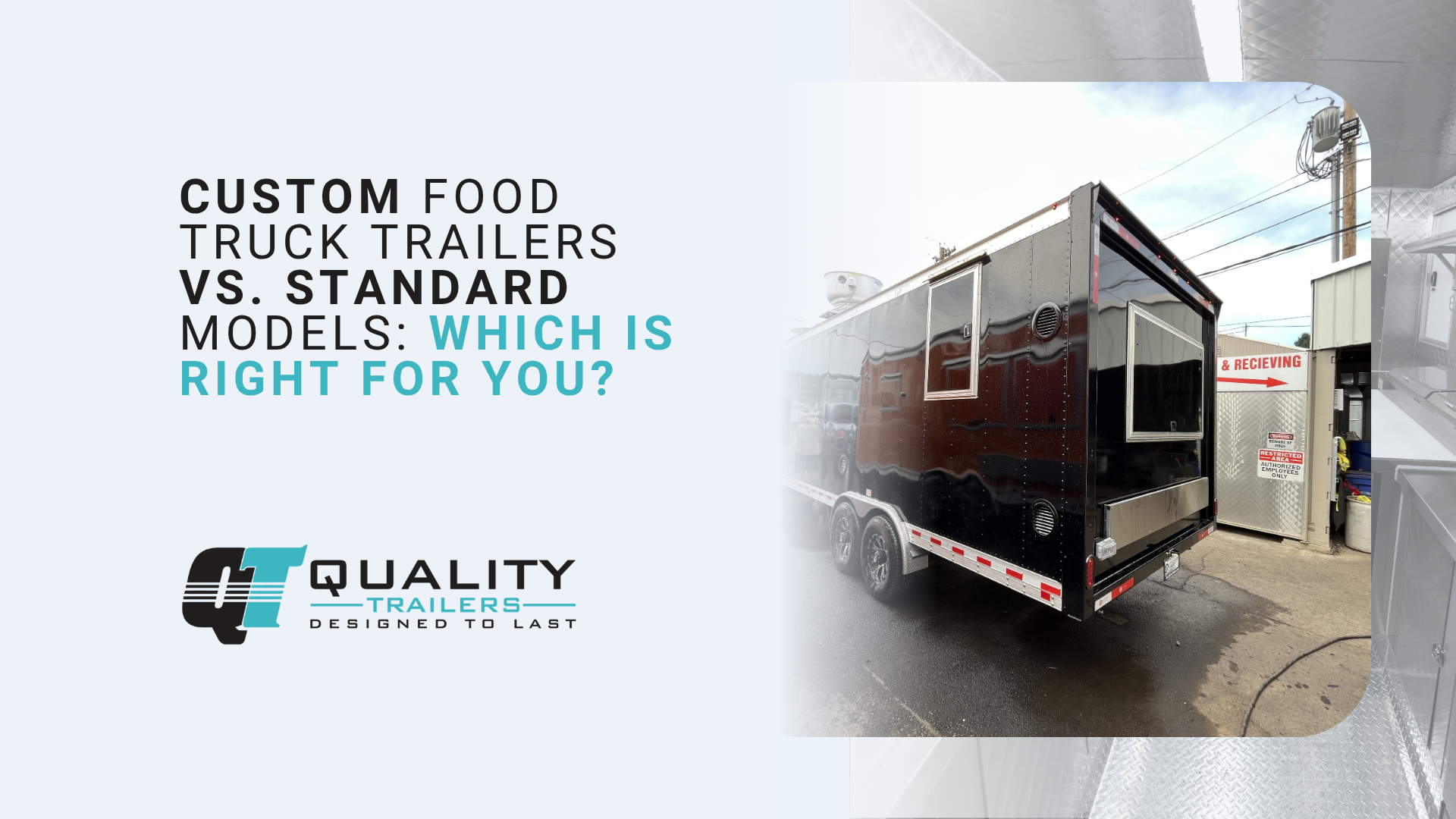In today’s competitive food industry, entrepreneurs are constantly seeking innovative ways to bring their culinary creations to the masses. Building quality trailers has become an art form that successful mobile food businesses rely on for their operations. Quality food trailers offer a versatile and cost-effective solution for aspiring food business owners looking to enter the market without massive overhead costs. Custom built food trailers provide the mobility and flexibility that traditional brick-and-mortar establishments simply cannot match, allowing owners to follow customer traffic and test different locations. For entrepreneurs considering the food service industry, investing in custom built quality food trailers can be the perfect launching pad for turning culinary dreams into thriving businesses.
Starting a food trailer business requires careful planning and consideration of numerous factors. From understanding your menu requirements to securing the proper permits, each decision plays a crucial role in determining your venture’s success. This comprehensive guide will walk you through everything you need to know about selecting the ideal food trailer for your specific business needs.
Understanding Your Business Requirements
Before diving into the world of food trailers, it’s essential to clearly define what your business needs and goals are. This foundational step will guide all your subsequent decisions.
Your menu concept is the heart of your food business and should be the primary factor influencing your trailer choice. Different food preparations require different equipment and space configurations. For instance, a pizza-focused menu will need ovens and preparation areas that differ significantly from those needed for a smoothie or ice cream business.
Consider your long-term business goals as well. Are you planning to operate seasonally or year-round? Do you intend to expand to multiple locations or perhaps transition to a brick-and-mortar establishment eventually? Your answers to these questions will influence the type and size of trailer you should invest in.
Types of Food Trailers Available
Understanding the variety of food trailers on the market will help you make an informed decision that aligns with your business requirements.
Concession Trailers
Concession trailers are fully enclosed units that typically feature serving windows on one side. These professionally designed units offer substantial interior space for cooking equipment, storage, and staff movement. Quality food trailers in this category provide excellent durability while maintaining the flexibility mobile businesses need.
These trailers provide excellent protection from the elements and can be customized with various cooking equipment, refrigeration units, and storage solutions. They’re ideal for businesses that require multiple cooking stations or have complex menu offerings.
Food Carts
For those starting with a smaller budget or simpler menu concepts, food carts offer a more compact and economical option. These smaller units are easy to transport and require less maintenance than larger trailers.
Food carts work well for specialized or limited menu offerings, such as hot dogs, pretzels, or coffee. Their smaller footprint also makes them ideal for indoor events or locations with space restrictions.
Mobile Kitchens
Mobile kitchens represent the most comprehensive food service vehicles available. These custom built trailers essentially function as complete commercial kitchens on wheels, offering all the functionality of a restaurant kitchen in a mobile format.
With extensive cooking capabilities and storage space, mobile kitchens can accommodate complex menu offerings and higher volumes. They’re perfect for businesses that need to prepare food for large crowds or offer diverse menu options.
Size and Layout Considerations
The size and layout of your food trailer will directly impact your daily operations and overall customer experience.
Interior Space Requirements
When determining your interior space needs, consider not only your equipment but also the number of staff members who will be working inside. The layout should allow for efficient movement and safe operation during busy periods.
Remember to account for storage space for ingredients, supplies, and personal items. A well-designed trailer optimizes every square inch while maintaining a comfortable working environment.
Serving Window Design
Your serving window is the primary point of customer interaction, making its design crucial to your operation’s efficiency and customer experience.
Consider factors such as:
- Height and accessibility for both customers and staff
- Protection from weather elements
- Security features for when the business is closed
- Visibility of menu items or food preparation
Flow and Functionality
The interior layout should facilitate a logical workflow from order taking to preparation to serving. This thoughtful design minimizes unnecessary movement and increases efficiency during busy periods.
Working with experienced manufacturers who specialize in custom built food trailers allows you to design your workspace according to your specific menu requirements and operational style, giving you a significant advantage over pre-configured options. This customization ensures every inch of space serves your business needs efficiently.
Equipment and Utility Requirements
Selecting the right equipment for your food trailer is crucial for operational efficiency and menu execution.
Cooking Equipment
Your menu will dictate the cooking equipment you need. Common equipment found in quality food trailers includes:
- Grills and griddles
- Deep fryers
- Ovens (conventional, convection, or pizza)
- Steam tables
- Hot plates
Choose commercial-grade equipment that can withstand continuous use and the rigors of mobile operation.
Refrigeration and Storage
Proper food storage is essential for both food safety compliance and operational efficiency. Consider your refrigeration needs carefully, including:
Refrigerators and freezers must be sized appropriately for your inventory needs while fitting within your trailer’s space constraints. Under-counter models can help maximize space utilization in compact layouts.
Don’t overlook dry storage requirements for non-perishable ingredients, disposable serving items, and cleaning supplies. Every inch of space should be thoughtfully allocated.
Electrical and Plumbing Systems
The utility systems in your food trailer form the critical infrastructure that powers your operation. Working with experienced custom trailer builders ensures these systems meet both your operational needs and comply with regulations.
Your electrical system must support all equipment simultaneously during peak operations. This includes not just cooking equipment but also refrigeration, lighting, POS systems, and possibly HVAC.
Plumbing systems need to incorporate fresh water tanks, gray water storage, water heaters, and hand-washing stations in compliance with health department requirements.
Regulatory Compliance and Permits
Navigating the regulatory landscape is one of the most challenging aspects of starting a food trailer business.
Health Department Requirements
Health departments typically have specific requirements for mobile food establishments, including:
Hand-washing stations, food preparation surfaces, and refrigeration must all meet strict guidelines. Working with builders experienced in custom built trailers helps ensure these requirements are met from the outset.
Regular inspections will be part of your business operations, so designing your trailer with compliance in mind saves headaches later.
Fire Safety Considerations
Fire safety is particularly important in the confined space of a food trailer, especially with cooking equipment in operation.
Most jurisdictions require fire suppression systems over cooking equipment, proper ventilation, and easily accessible fire extinguishers. These systems must be professionally installed and regularly maintained.
Licensing and Insurance
Beyond the physical trailer requirements, you’ll need various permits and insurance coverage to operate legally.
Research local requirements for business licenses, food service permits, and mobile vending permits early in your planning process. Insurance needs typically include general liability, commercial auto insurance, and possibly workers’ compensation if you have employees.
Customization Options and Branding
Your food trailer serves as both your operational headquarters and your primary marketing tool. Strategic customization enhances both functions.
Exterior Design and Wraps
The exterior of your quality food trailer provides valuable branding real estate. Professional vinyl wraps and custom paint jobs transform your trailer into a rolling billboard for your business.
Your design should clearly communicate your brand identity and food offering while being visible from a distance. Consider how your trailer will appear in photos shared on social media as well.
Signage and Menu Displays
Clear, attractive signage helps customers understand your offerings quickly and makes ordering more efficient.
Digital menu boards offer flexibility for changing offerings, while illuminated signs enhance visibility during evening hours. Whatever style you choose, ensure it’s weather-resistant and securely mounted.
Functional Customizations
Beyond aesthetics, consider functional customizations that enhance your specific operation.
These might include:
- Specialized serving windows for your particular food type
- External shelving or condiment stations
- Awnings for weather protection
- External speakers for music or order announcements
Budget Considerations
Understanding the complete financial picture helps you make sound decisions that balance immediate costs with long-term value.
Initial Investment vs. Long-term Value
Quality food trailers represent a significant investment, but cutting corners often leads to higher operational costs and maintenance issues down the road.
Commercial-grade equipment and proper construction may cost more initially but provide reliability and durability that pays dividends throughout your business operation. Consider the cost of downtime due to equipment failures when evaluating your options.
New vs. Used Options
The market offers both new and used food trailers, each with distinct advantages and considerations.
New custom built trailers can be designed exactly to your specifications and typically come with warranties on construction and systems. Used trailers may offer significant cost savings but require careful inspection of all systems and may have limitations on customization.
Financing and Leasing Options
Various financing options exist for entrepreneurs looking to enter the food trailer business.
Traditional business loans, equipment financing, and even leasing arrangements can make acquiring a quality food trailer more accessible. Some trailer manufacturers may offer financing programs directly or through partner institutions.
Mobility and Transportation Considerations
The “mobile” aspect of a mobile food business comes with its own set of considerations that impact both operations and costs.
Towing Requirements
Understanding what’s needed to safely transport your food trailer is essential for both regulatory compliance and practical operation.
The weight of your fully equipped trailer determines the towing vehicle requirements. Be sure to account for the weight of equipment, supplies, water tanks, and generators when calculating towing needs.
Verify that your towing setup complies with local regulations regarding braking systems, lighting, and weight ratings.
Setup and Breakdown Efficiency
For businesses that change locations frequently, the ease of setup and breakdown becomes a daily operational concern.
Design your trailer with quick-connect utilities and efficient stabilization systems if mobility is a core part of your business model. Time spent setting up and breaking down directly impacts your profitable operating hours.
Location Flexibility
One of the primary advantages of food trailers is the ability to change locations based on customer traffic patterns.
Quality food trailers with self-contained water and power systems offer maximum flexibility in choosing operating locations. Consider whether your typical venues will provide water and power hookups or if you’ll need to be fully self-sufficient.
Seasonal Considerations and Weather Adaptability
Climate considerations should influence both your trailer design and business planning.
Climate Control Systems
Working in an enclosed trailer can become uncomfortable without proper climate control, affecting both staff performance and food quality.
For hot climates, effective ventilation systems, exhaust fans, and possibly air conditioning become essential features. In colder regions, heating systems and proper insulation ensure comfortable year-round operation.
Weather Protection for Customers
Providing some weather protection for waiting customers can significantly increase sales during inclement weather.
Retractable awnings, covered serving areas, or even simply a thoughtful placement of your serving window relative to surrounding shelter can make your business more resilient to weather variations.
Seasonal Business Planning
Many food trailer businesses experience seasonal fluctuations in demand, which should influence your trailer selection.
If you plan to operate year-round in varying conditions, invest in features that support all-weather operation. For seasonal businesses, simpler setups may be more cost-effective, with the trade-off of limited operating periods.
Technology Integration
Modern food trailers increasingly incorporate technology to enhance efficiency and customer experience.
Point of Sale Systems
An efficient POS system streamlined for your specific operation can significantly reduce order processing time and errors.
Look for systems that offer:
- Quick order entry for fast-paced environments
- Inventory tracking capabilities
- Sales reporting for business analysis
- Integration with payment processors for all payment types
Online Ordering and Social Media Integration
Digital ordering channels can expand your customer base and increase efficiency during peak times.
Custom built quality food trailers can be designed with dedicated areas for managing online orders separate from the walk-up customer flow. Social media integration helps build your brand and lets customers know your current location and special offerings.
Maintenance and Longevity
A food trailer is a significant investment that requires proper maintenance to protect its value and functionality.
Routine Maintenance Requirements
Establishing a regular maintenance schedule helps prevent costly breakdowns and extends the life of your equipment.
Regular tasks include:
- Checking and maintaining propane systems
- Servicing generators and electrical systems
- Inspecting water systems for leaks or issues
- Lubricating moving parts like hinges and stabilizers
Cleaning and Sanitation Systems
Efficient cleaning systems make daily sanitization faster and more thorough, which is essential for both compliance and operational efficiency.
Design considerations should include easy-to-clean surfaces, accessible drains, and sufficient water capacity for thorough daily cleaning.
Why Quality Trailers Inc
When investing in a food trailer for your business, partnering with an experienced manufacturer makes all the difference in your journey to success. Quality Trailers Inc brings over two decades of expertise to the table, ensuring your vision becomes reality.
As a family-owned business based in Oregon, Quality Trailers Inc has been manufacturing high-quality trailers since 2001. While we began crafting flatbed trailers, dump trailers, and car haulers for the construction industry, we pivoted to food trailers in 2010. This shift allowed us to combine our manufacturing expertise with the booming food cart culture of our hometown.
What sets Quality Trailers Inc apart is our understanding that a food trailer is more than just a kitchen on wheels—it’s the foundation of your business dreams. Each trailer is built to withstand the elements while providing a comfortable, efficient workspace. Our design process incorporates CAD expertise and cutting-edge manufacturing techniques, ensuring every unit is permitted and built up to code from the ground up.
Frequently Asked Questions
How long does it typically take to build a custom food trailer?
The timeline for building a custom food trailer typically ranges from 8-12 weeks, depending on complexity, customizations, and current production schedule. Quality Trailers Inc provides detailed timeline estimates during the initial consultation phase.
What type of warranty comes with a new food trailer?
Quality Trailers Inc offers a full 2-year manufacturer’s warranty covering the entire trailer and all components built in-house, including the frame, electrical system, plumbing, stainless steel counters, cabinets, shelves, and any additional installed features.
Can I visit the manufacturing facility to see trailers being built?
Yes, Quality Trailers Inc. welcomes potential customers to visit our Oregon facility by appointment. Or, walk-ins are welcome too. This gives you the opportunity to see our craftsmanship firsthand and discuss your specific needs in person with our design team.
What financing options are available for purchasing a food trailer?
Several financing options are available, including traditional business loans, equipment financing, and sometimes manufacturer-assisted financing programs. Quality Trailers Inc can provide references to financial partners experienced in food trailer business funding.
How do I determine what size food trailer is right for my business?
The right size depends on several factors including your menu complexity, staffing needs, equipment requirements, and typical venue restrictions. Our design consultants can help assess your specific needs based on your business plan and operational goals.



